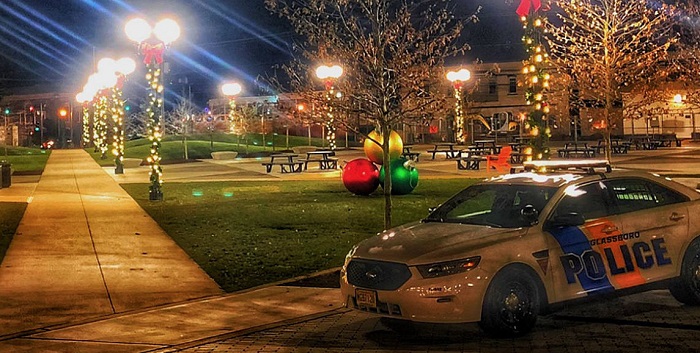

By Chief Joel F. Shults, Ed.D.
I like working holidays. Things are either very serene and quiet or very intense and filled with pathos.
One Christmas eve day I responded to a report of a missing 6-year-old boy. Lost and missing children calls strike at the heart. A missing child call conjures up so many possible and terrible scenarios. Most of those cases are quickly resolved, some when the child is found at a friend’s house, some when the child has been hiding inside the house to avoid a spanking.
The distraught mother reported that she and her little boy had an argument over Christmas presents, and shortly after, he disappeared. I got a description and photograph, alerted all agencies in the vicinity, and I and my colleagues began the methodical searches and contacts according to protocol. As I widened my patrol I spotted a small figure along a side road that led to a major highway. As I pulled over it was obvious that this was my little runaway, who had managed to hike over a mile from his home.
He looked the part, right down to the bundle tied to a stick that he carried over his shoulder. Somewhere he had seen the image of a hobo with a cartoon-like kerchief bundling all their worldly possession in a kerchief on a stick.
I approached the determined little guy carefully, hoping that the boy wouldn’t run into the woods like a scared rabbit. He didn’t run, and if he was afraid of me, he didn’t show it. I knelt at eye level and ask him where he was headed. “My teacher’s house”, he said. In his kindergarten mind, the one person he knew would love him was his teacher. He wasn’t exactly sure where she lived but knew it was in the next town over. He had another 15 miles ahead of him. I was glad I got him before he reached the highway.
I asked what was in his pouch. “Socks”, he said. Six pairs of socks. I told him we’d need to get him back home, that his mother was very worried. He didn’t debate the idea. His adventure had already begun to wear on him.
The problem with runaways, whether they are 6 or 16, is that sometimes they are running away from a situation that really is terrible. The last thing I wanted to do was to put this child back into a potentially abusive situation. Cops carry on conversations for a lot of reasons. It can be to help people calm down, to build trust and empathy, and to create time for observations and assessment. I wanted to know if he’d been hurt at home, if he was afraid, or if there was anyone who was threatening him. I wanted a happy reunion, not a return to a nightmare. As we talked, I looked for signs of abuse, a hesitancy to answer, and to determine if the account given by his mother matched the story the child told.
With a side trip through McDonald’s to get a Happy Meal, we talked a little bit more. I wanted to be Officer Friendly, but I also wanted to if he had an appetite and make some more observations about his demeanor. I became reasonably convinced that he and his mother had, indeed, had a normal little spat that had somehow been the last straw on the little man’s day.
At the home, where an officer had stayed to comfort the boy’s mother, but also to make those quiet observations and assessments, my little hitchhiker was reunited. Mother and child were both happy. We stayed just a little while to answer any questions, offer help, and again to make those quiet observations about the dynamics of that reunion. Was there fear? Anger? Threats?
That was a happy ending as we cleared the call. It is a cute little story. But in a police officer’s mind, there are always questions. Was I right? Is he safe? Is the family ok? That is the price of being a law officer, the specter of bad outcomes and undiscovered evil. I could only pray that the little runaway had a merry Christmas after all.